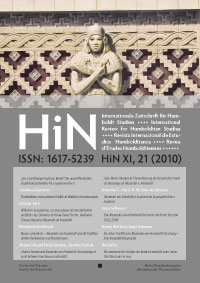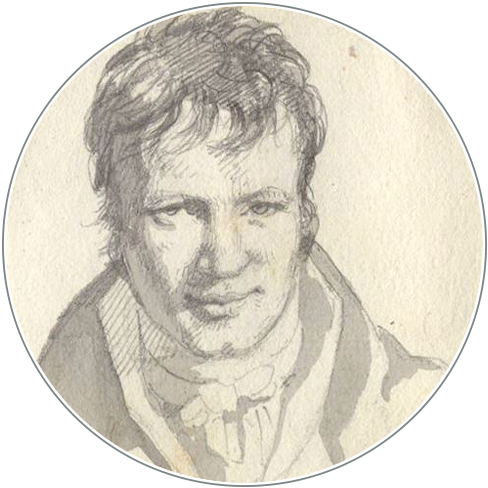Nomos und physis. Alexander von Humboldt und die Tradition antiker Denkweisen und Vorstellungen
DOI:
https://doi.org/10.18443/144Keywords:
Aristoteles, Philolaos aus Kroton, Pythagoreer, Wissenschaftsbeziehungen, Wissenschaftsgeschichte, Wissenschaftspraxis, WissenschaftstheorieAbstract
Abstract
Alexander von Humboldt’s world view, philosophy of science, and scientific practice were dominated by the notions of measure and harmony. This matter of fact does not leave any doubt about Humboldt’s Pythagoreanism. Already the choice of the title of his Kosmos was led by Pythagorean thought. In 1846 he explicitly wrote to Jacobi that the whole first book is based on the idea that the first Hellenic seeds to all further progresses of mathematical natural knowledge are owed to the Pythagoreans and their emphasis on measure, number, and weight. The paper consists of four parts. The first part deals with Humboldt’s acquaintance with the fragments of the Pythagorean Philolaus. The second part compares the Aristotelean tradition with Philolaus’s informations on Pythagoreanism. The third part relying on the two foregoing parts explains Humboldt’s philosophy of science as a tranformation of Pythagoreanism. The last part discusses three examples taken from Humboldt’s scientific practice in order to illustrate the results deduced up to then.
Downloads
Published
How to Cite
Issue
Section
License
Copyright (c) 2010 Eberhard Knobloch

This work is licensed under a Creative Commons Attribution-NonCommercial 4.0 International License.
HiN operates under a Creative Commons-Licence (CC BY-NC 4.0), which permits the reproduction of articles, free of charge, for non-commercial use only and with the appropriate citation information. All authors publishing with HiN accept these terms of publication.
Authors retain the copyright for their articles and reviews. Copyright of the layout and design of HiN articles remains with the journal and cannot be used in other publications.









